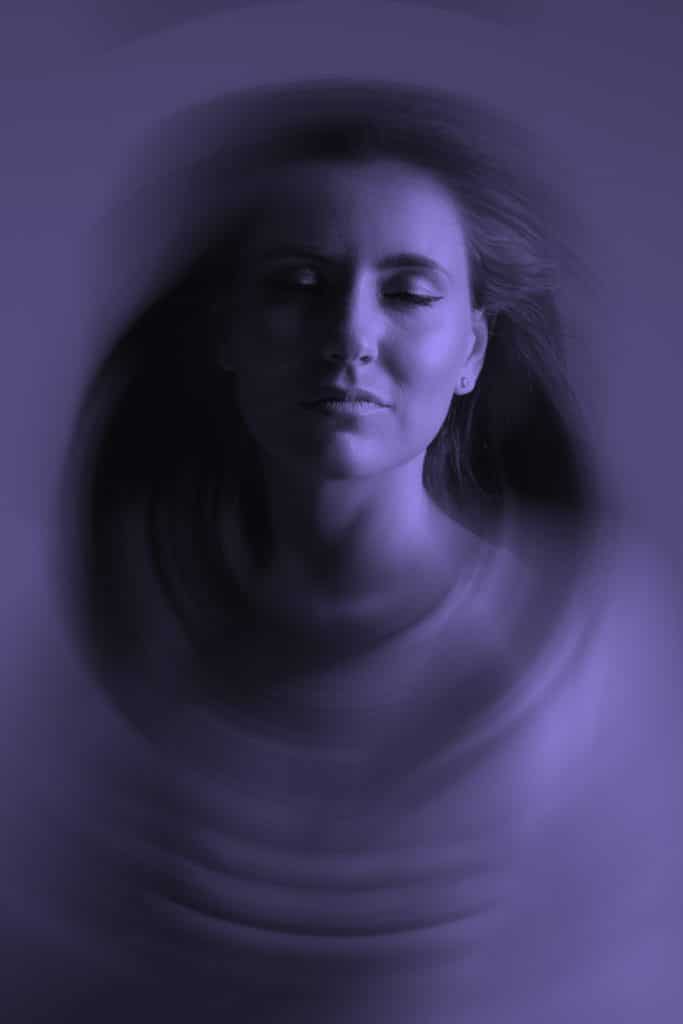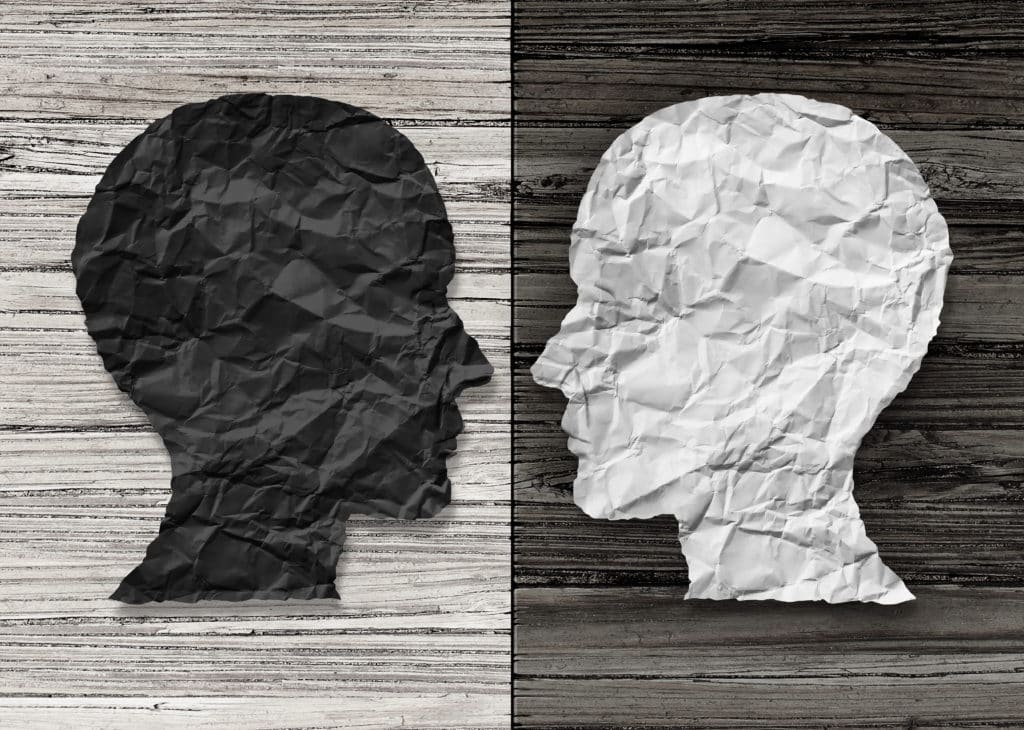The symptoms of bipolar disorder are categorized by two extreme mood swings: manic episodes and depressive episodes.
Manic Episodes
Manic episodes are defined by a drastic increase in energy and often higher moods. While someone may feel unusually happy during a manic episode, all is not well. During manic episodes, you might not feel the need to sleep or eat. You may struggle with unbridled feelings of happiness or relation and energy. You might feel incredibly important and have lots of new ideas and big plans that you want to complete.
You will also be distracted easily, agitated or irritable. You’ll struggle with impulse control, so you might buy things you can’t afford, say things you wouldn’t normally say, or behave in ways that aren’t like you.
Depressive Episodes
During depressive episodes, which can last for several weeks or months, you might experience irritability, perpetual sadness, or hopelessness. You won’t have a lot of energy.
You may struggle with too little or too much sleep and a lot of self-doubt. You will have trouble concentrating and remembering things while you struggle with feelings of guilt, emptiness, worthlessness, or despair. You will usually lose interest in everyday activities and have a generally pessimistic attitude about everything around you.
Bipolar Disorder Treatment
The proper bipolar disorder treatment will include short-term and long-term combinations of therapy and medications. Doctors will work with you to determine which medication will respond most effectively to your bipolar disorder type.
Short term:
Studies indicate that antipsychotic drugs can effectively treat acute symptoms of mania. Antipsychotics are most successful when paired with mood stabilizers. Most often, they are prescribed for treating manic or mixed episodes.
They can also be used to control acute depressive or manic episodes.
Lithium has been found to be the most successful for long-term relapse prevention. Lithium helps to stabilize your mood and prevent extreme depressive and manic episodes. Lithium can help prevent relapse and is often used for ongoing treatment, but it has side effects, so you’ll have to take periodic blood tests to ensure you aren’t suffering from thyroid or kidney problems.
Anticonvulsants like lamotrigine and Divalproex can help with acute symptoms of manic and depressive episodes. Anticonvulsant medications usually used to treat seizures can also function as successful mood stabilizers for bipolar disorder. There are different anticonvulsants prescribed to treat mania. Lamotrigine, for example, is usually used to delay the occurrence of bipolar I disorder.
Antidepressants are also used as mood stabilizers and to control the acute symptoms of depressive episodes.
At our bipolar treatment center, you might participate in things like cognitive behavioral therapy, where you can get help addressing negative thoughts and behavioral patterns familiar with depressive symptoms of your bipolar disorder. Recognizing these negative thought patterns is the first step in applying coping strategies and changing them to positive thought patterns. Similarly, bipolar disorder treatment should include psychoeducation, support groups, and psychotherapy.
Family therapy is another important part of bipolar disorder treatment. Family therapy helps those around you learn about your disorder and participate in the successful implementation of your long-term treatment plan.
Our bipolar treatment center specializes in psychotherapy, where you can focus on stress regulation and self-care. This provides an opportunity to recognize symptoms of an oncoming manic or depressive episode, better manage your stress, and improve self-care during that time frame.
Long term:
Treatment is best maintained with psychosocial drug treatment.
At our bipolar treatment center, you can work with our team to create a psychosocial treatment plan that:
- Enhances your identity,
- Improves social cognition,
- Aids interpersonal functioning,
- Helps with emotional processing
All of these benefits of your plan can help you better engage in your environment and manage the symptoms of your disorder.










